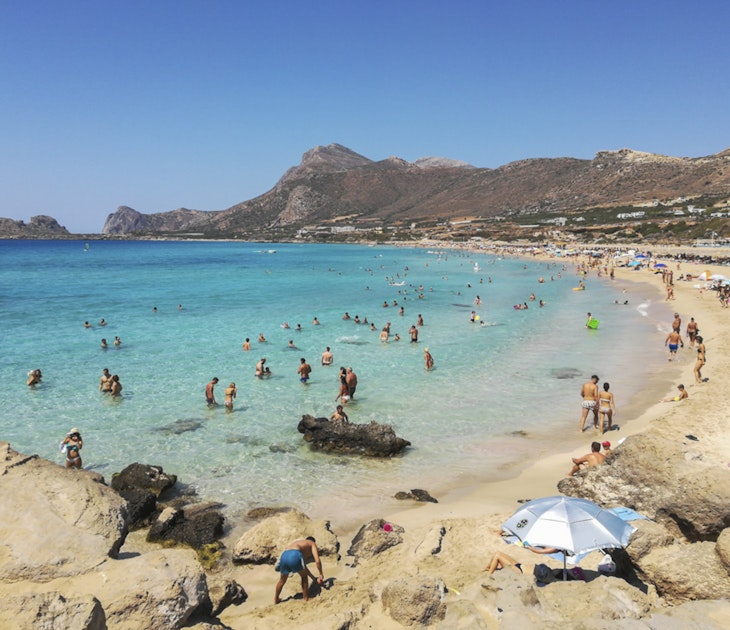
The 7 best beaches near Tokyo: sand, surf and summer fireworks just two hours from the capital



Explore the vibrant beach and surf scenes just outside Tokyo В© Toshirou Mishina / Getty Images
Tokyo is famous for many things, but beaches are not one of them. Outside of the city limits, however, the prefectures of Kanagawa, Chiba, and Shizuoka have thriving beach scenes. ItвҖҷd be overselling to call these spots world-class вҖ“ head to Okinawa for that вҖ“ but if youвҖҷre in and around the capital during the summer and crave a little surf, there are many great options.
There are quiet, local beaches and heaving popular ones; gentle coves for families and reef breaks for surfers. Peak summer is July and August, when many beaches have temporary huts, festivals, and firework displays. Note that the Japanese sun is strong! Many locals wear hats or hide under beach umbrellas.
Here are the seven best beaches within a two-hour radius of Tokyo.
Enjoy the surf in sight of Mt Fuji at Zaimokuza Beach, Kanagawa
Though Kamakura is only a one-hour train ride from Tokyo, this seaside town, complete with a laid-back California surfer vibe, feels a world away. Of Kamakura's five beaches, Yuigahama is the most popular, and the first one you reach if you're walking from the train station; it can also get incredibly crowded, especially on weekends. For more space, keep walking instead to Zaimokuza, a broad stretch of sand fronted by waters that are generally gentle. On clear days, look east for stunning views of Mt Fuji.

The easiest beach to reach from Tokyo is Katase Higashihama Beach, Kanagawa
If you're short on time, head to Katase Higashihama, right by Enoshima Island. Just a short walk from the station, the spot has a more relaxed attitude to tattoos, alcohol and pets, and boasts a huge range of amenities including toilets, showers, chair and umbrella rentals, parking, shops and restaurants. It's not the prettiest because the dark sand looks a bit like cigarette ash, but you can hardly see it for all the beach umbrellas. Katase Higashihama is particularly popular with Tokyo teens and students.
Isshiki Beach, Kanagawa, is a lovely place to relax
Just a 15-minute bus ride away from busy Zushi lies pretty Isshiki Beach. ItвҖҷs distinctly quieter than its surrounding neighborhoods, largely thanks to the rock formations and greenery that create a coastal enclave. The fact that there is no direct train access gives Isshiki Beach more of a local feel. Visitors come to relax by the water, laying out towels to sunbathe or read in peace. Temporary facilities are set up each summer to cater to their needs.

The best beach for surfers is Onjuku Beach, Chiba
Head southeast for ChibaвҖҷs Onjuku Beach and hit a surferвҖҷs paradise. The crescent-shaped beach holds yearly national surf carnivals and competitions, thanks to swells that nearly always break. Beach huts and rental shops provide all the gear you need, including surfboards, bodyboards, paddleboards and wetsuits. As a bonus, the beach itself is lovely, with powdery sand and bright blue waters.
Zushi Beach, Kanagawa, has great cafe culture and the best windsurfing
Zushi Beach is extremely popular for all beach activities, and for those who need to stop to refuel on caffeine (or simply want to play spectator), the good news is that the coastline is dotted with coffee shops, bars and restaurants right by the action. Look out for вҖ“ a vegan cafe specializing in delicious handmade baked goods. The far end of the beach, by the marina, meanwhile, is one of the best spots for windsurfing near Tokyo.

Atami Sun Beach, Shizuoka, is the best beach in the evenings
For those seeking to extend beach hours, the fun doesnвҖҷt end at dusk over at Atami Sun Beach. This sandy beach lined with palm trees lights up blue each sunset till 10pm, and in the summer, there are regular fireworks displays to add to the color spectacle. Events draw in large crowds, creating a festival atmosphere without the fumes вҖ“ smoking is forbidden here.
Stroll the lovely coastline at Southern Beach, Kanagawa
In terms of walks, Southern Beach in Chigasaki is a feast on the eyes at any given time of year. The beachвҖҷs вҖңSouthern CвҖқ monument is a famous marriage and photo spot, and wandering onward leads strollers to plenty of restaurants and small businesses along the coastline. From the beach, you can see Enoshima Island in the east, Mt Fuji in the west, and large rock formations including Eboshi Iwa, a hat-shaped rock, ahead. The beach is packed in summer for fireworks and events, making it a superb spot for a bit of people-watching.
YouTube video player
Be sure to adhere to Japanese beach etiquette
Beaches in Japan have an official season, which usually coincides with the summer school holiday, from mid-July through August. During this time, popular beaches like Katase Higashihama will have umi-no-ie вҖ“ вҖңbeach hutsвҖқ that rent umbrellas and chaises and sell drinks and not very good food. This is also when lifeguards are present. However, a visit outside of the season is still possible, and this is when the beaches are at their most pleasantly uncrowded.
Most beaches are equipped with public toilets and showers that are open year-round. In the absence of huts, there is usually a convenience store nearby to pick up supplies. Japanese beaches tend to be clean, despite a lack of garbage cans вҖ“ beachgoers pack up their trash and take it home with them, and visitors should do the same.
Keep a lookout at entrances for individual beach rules, such as swimming, noise or alcohol restrictions. Nudity is widely prohibited. Kamakura and Zushi beaches have a no visible tattoo policy.
You might also like:
21 of the best free things to do in Tokyo: from shrines to sumo
The best times to visit Tokyo: from spring cherry blossoms to winter lights
The 5 best day trips from Tokyo: hot springs, mountain views, and Big Buddha
Explore related stories









